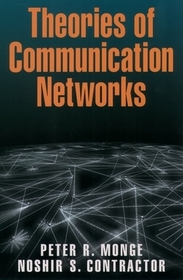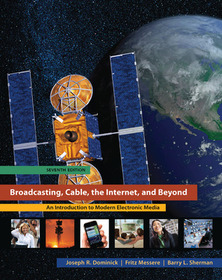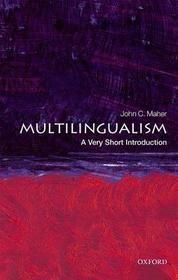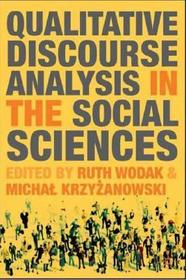
Theories of Communication Networks
-
10% KEDVEZMÉNY?
- A kedvezmény csak az 'Értesítés a kedvenc témákról' hírlevelünk címzettjeinek rendeléseire érvényes.
- Kiadói listaár GBP 48.49
-
23 166 Ft (22 062 Ft + 5% áfa)
Az ár azért becsült, mert a rendelés pillanatában nem lehet pontosan tudni, hogy a beérkezéskor milyen lesz a forint árfolyama az adott termék eredeti devizájához képest. Ha a forint romlana, kissé többet, ha javulna, kissé kevesebbet kell majd fizetnie.
- Kedvezmény(ek) 10% (cc. 2 317 Ft off)
- Kedvezményes ár 20 849 Ft (19 856 Ft + 5% áfa)
Iratkozzon fel most és részesüljön kedvezőbb árainkból!
Feliratkozom
23 166 Ft

Beszerezhetőség
Megrendelésre a kiadó utánnyomja a könyvet. Rendelhető, de a szokásosnál kicsit lassabban érkezik meg.
Why don't you give exact delivery time?
A beszerzés időigényét az eddigi tapasztalatokra alapozva adjuk meg. Azért becsült, mert a terméket külföldről hozzuk be, így a kiadó kiszolgálásának pillanatnyi gyorsaságától is függ. A megadottnál gyorsabb és lassabb szállítás is elképzelhető, de mindent megteszünk, hogy Ön a lehető leghamarabb jusson hozzá a termékhez.
A termék adatai:
- Kiadó OUP USA
- Megjelenés dátuma 2003. május 15.
- ISBN 9780195160376
- Kötéstípus Puhakötés
- Terjedelem432 oldal
- Méret 237x154x21 mm
- Súly 590 g
- Nyelv angol
- Illusztrációk numerous tables and figures 0
Kategóriák
Rövid leírás:
Theories of Communication Networks presents solutions to all five problems. The authors develop a multi-theoretical model that relates different social science theories with different network properties. This model is multilevel, providing a network decomposition that applies the various social theories to all network levels: individuals, dyads, triples, groups, and the entire network. The book then establishes a model from the perspective of complex adaptive systems and demonstrates how to use Blanche, an agent-based network computer simulation environment, to generate and test network theories and hypotheses. It presents recent developments in network statistical analysis, the p* family, which provides a basis for valid multilevel statistical inferences regarding networks. Finally, it shows how to relate communication networks to other networks, thus providing the basis in conjunction with computer simulations to study the emergence of dynamic organizational networks.
TöbbHosszú leírás:
To date, most network research contains one or more of five major problems. First, it tends to be atheoretical, ignoring the various social theories that contain network implications. Second, it explores single levels of analysis rather than the multiple levels out of which most networks are comprised. Third, network analysis has employed very little the insights from contemporary complex systems analysis and computer simulations. Foruth, it typically uses descriptive rather than inferential statistics, thus robbing it of the ability to make claims about the larger universe of networks. Finally, almost all the research is static and cross-sectional rather than dynamic.
Theories of Communication Networks presents solutions to all five problems. The authors develop a multitheoretical model that relates different social science theories with different network properties. This model is multilevel, providing a network decomposition that applies the various social theories to all network levels: individuals, dyads, triples, groups, and the entire network. The book then establishes a model from the perspective of complex adaptive systems and demonstrates how to use Blanche, an agent-based network computer simulation environment, to generate and test network theories and hypotheses. It presents recent developments in network statistical anlysis, the p* family, which provides a basis for valid multilevel statistical inferences regarding networks. Finally, it shows how to relate communication networks to other networks, thus providing the basis in conjunction with computer simulations to study the emergence of dynamic organizational networks.
Tartalomjegyzék:
Networks and Flows in Organizational Communication
Part I: The Multitheoretical, Multilevel Framework
Network Concepts, Measures, and the Multitheoretical, Multilevel Analytical Framework
Communication and Knowledge Networks as Complex Systems
Computational Modeling of Networks
Part II: Social Theories for Studying Communication Networks
Theories of Self-Interest and Collective Action
Contagion, Semantic, and Cognitive Theories
Exchange and Dependency Theories
Homophily, Proximity, and Social Support Theories
Evolutionary and Coevolutionary Theories
Part III: Integration
MultiTheoretical, Multilevel Models of Communication and Other Organizational Networks
Appendix: Data Sets Used in Chapter 2
References
Author Index
Subject Index


Broadcasting, Cable, the Internet, and Beyond: An Introduction to Modern Electronic Media
66 306 Ft
59 676 Ft

Journalism: A Very Short Introduction: A Very Short Introduction
3 817 Ft
3 435 Ft








